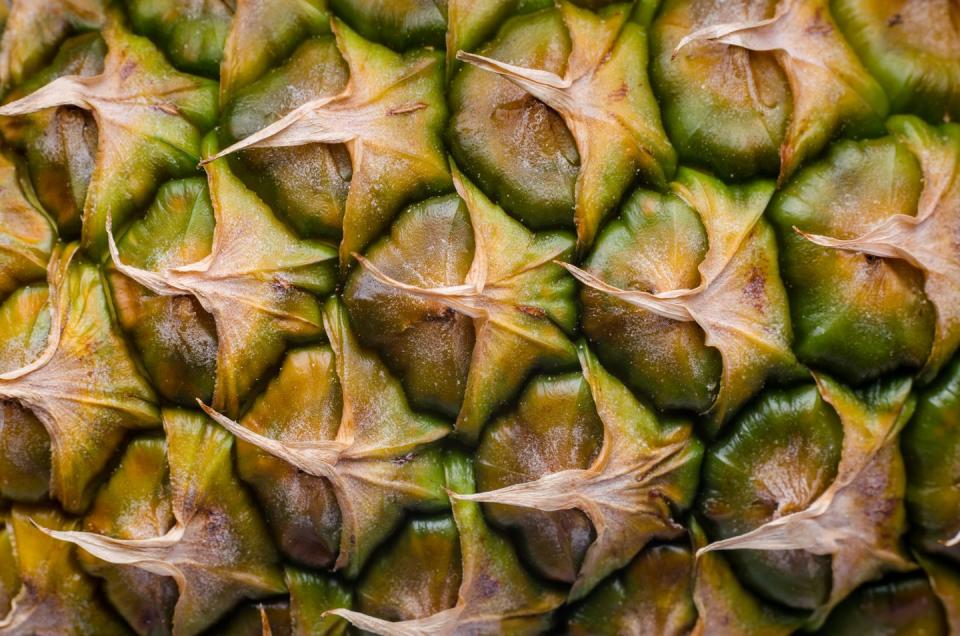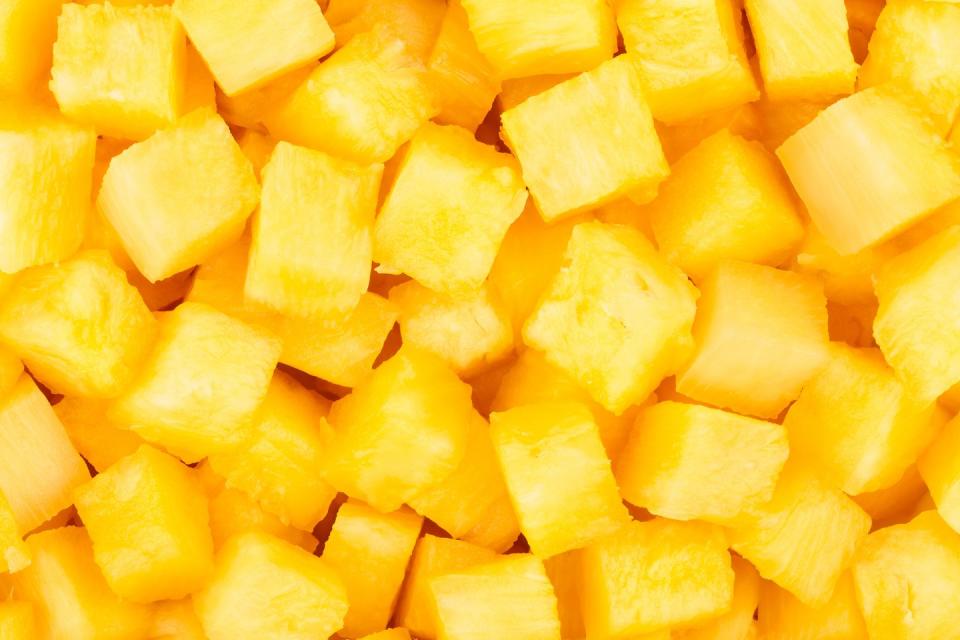Never Do This When Cooking With Pineapple
Whether you enjoy it in a cocktail, in desserts, or as a controversial pizza topping, pineapple is a versatile ingredient. The sweet and tart tropical fruit is indigenous to South America, but now can be spotted in cuisines around the world.
People love pineapple, but not everybody appreciates the sensation of eating it. It can cause a burning, itchy sensation on our tongues and even allergic reactions. The side effects of consuming pineapple even leads some people to avoid it entirely.
But what exactly causes this itchy sensation? How does it impact our food and our bodies? We consulted Rosemary Trout, program director of culinary arts and food science at Drexel University, to explore the science behind cooking and eating pineapple.
What Happens To Our Mouths When We Eat Pineapple?

We can credit the fuzzy feeling in our mouths to pineapple’s concentration of proteolytic enzymes. While you can find certain substances like ananain and comosain, Trout says the primary group of enzyme that's in pineapple is bromelain. It's present in the root, stem, and the fruit, which means it's inescapable if you're eating it raw.
Bromelain breaks down protein, including the proteins present in our saliva. The roofs of our mouth and our tongues are coated in a protective layer of saliva. The enzymes in pineapple breaks down that lining and allows the natural acidity of the fruit to get unfettered access to our mouths—hence the burning or tickling sensation.
That doesn’t mean that eating pineapple is necessarily harmful. Indigenous communities in Central and South America historically used pineapple’s enzymatic properties to treat digestive ailments. And some preliminary studies support the idea of bromelain as a treatment for sinus infections and pain relief from wisdom tooth surgery.
With the exception of anyone with allergies, people don’t need to fear the feeling of pineapple’s natural enzymes. But if you want to avoid it, your best bet is cooking your pineapple to kill the enzymes before you eat it.
What Does Pineapple Do To Our Food?

The enzyme group bromelain breaks down proteins in our mouths and in our food. That can be a good thing in limited doses.
For example, pineapple is a main ingredient in tacos al pastor, and not just to add a burst of freshness to balance the savory spices. The fruit is a critical part of an al pastor marinade, which allows the enzymes to break down the tough connective tissue of pork shoulder.
The tenderizing properties of these enzymes are why many food manufacturers use them specifically for seasonings. “They are used as meat tenderizers when the enzymes are isolated and made into a powder form and blended with fillers like salt, sugar, and other compounds,” Trout says.
But there is such a thing as too much bromelain. Marinating foods with pineapple (or with bromelain-based tenderizers) for prolonged periods of time can take the proteins past tender and toward disintegrated.
“Pineapple can interfere with gelatin-based gel formation,” Trout says. “Gelatin is a protein derived from collagen, a connective protein in animals that is affected by the proteolytic action of bromelain.”
The way pineapple disrupts gelatin's job means that it can not only affect the texture of meat, but it also means that it can prevent gelatin-based desserts from fully setting. If you're ever using pineapple and gelatin in a recipe, use canned pineapple instead of fresh; the heat treatment that occurs during canning kills the enzymes ahead of time.
Pineapple is a bright and flavorful addition to your recipes, but we suggest using it carefully to ensure that it helps, instead of harms, your food.
You Might Also Like


